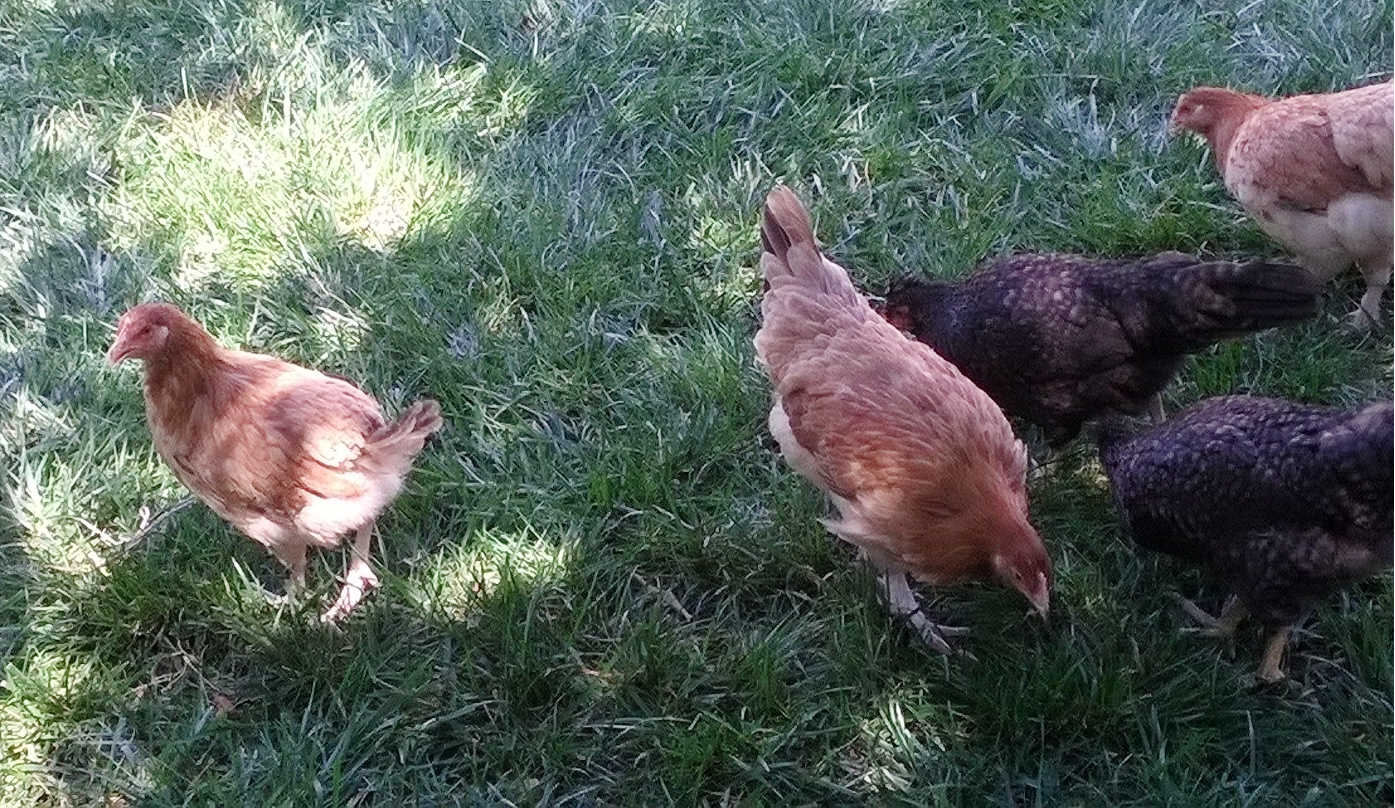A must-have for all chicken owners is the Chicken Health Handbook by Gail Damerow. Order your copy today at Meyer Hatchery - Chicken Health Handbook.
Click to shop Day Old chicks.
Much of the fun of having a backyard flock is having a variety of different chicken breeds. But what surprises many chicken keepers is that there can be differences between individual chickens of the same breed. After all, they are living creatures much like us, with their own personalities and biological make-up.
Sometimes a chick may grow more slowly than its flockmates when compared to other chicks of the same breed. Here are a few things to consider when you have a chick that isn’t growing out or feathering as expected.

Being Bullied?
Do you notice the other chicks actively bullying the smaller chick? If so, you may need to break the flock up into smaller groups to give the smaller chick a chance to eat and drink its share. However, don’t completely isolate it. Chickens are flock animals and being alone isn’t good for them mentally. Keep the smaller bird with two or three other chicks that appear to be more laid-back in their personality. Then watch the group closely to make sure you didn’t accidentally find the more dominant members of the flock for the small chick’s flockmates.
Even if you don’t see any active bullying, sometimes the small chick simply has a more timid personality and is less aggressive about getting its share at the feeder. Try adding another feeder or two to the coop and run to give the small chick more opportunity to eat in peace.
Illness or Parasites
If your chicks are dealing with a bout of coccidia, the damage caused to the intestinal tract may lead to stunted growth which may be permanent. It’s important to keep your brooder clean and dry and feed medicated feed to your young chicks if coccidia is an issue where you live. Even though the entire group of chicks will likely have coccidia if one has it, it’s possible that only some of the chicks may suffer long-term growth issues from it.
Intestinal worms may also cause issues with growth rate by taking away nutrients and causing intestinal damage. A regular deworming program is a good idea, especially if you keep a larger flock. Mites and lice can also trouble a flock enough to cause growth problems in some of your birds.
Maybe It’s Just Nature
If you keep bullying in check, make sure that your small chick can get its share of feed, and have a plan to prevent illness and parasites, sometimes it may just be the genetics of the chick that leads to its small size. After all, just like people, each bird is genetically unique and not a carbon copy of another.


Comments
0 comments
Please sign in to leave a comment.